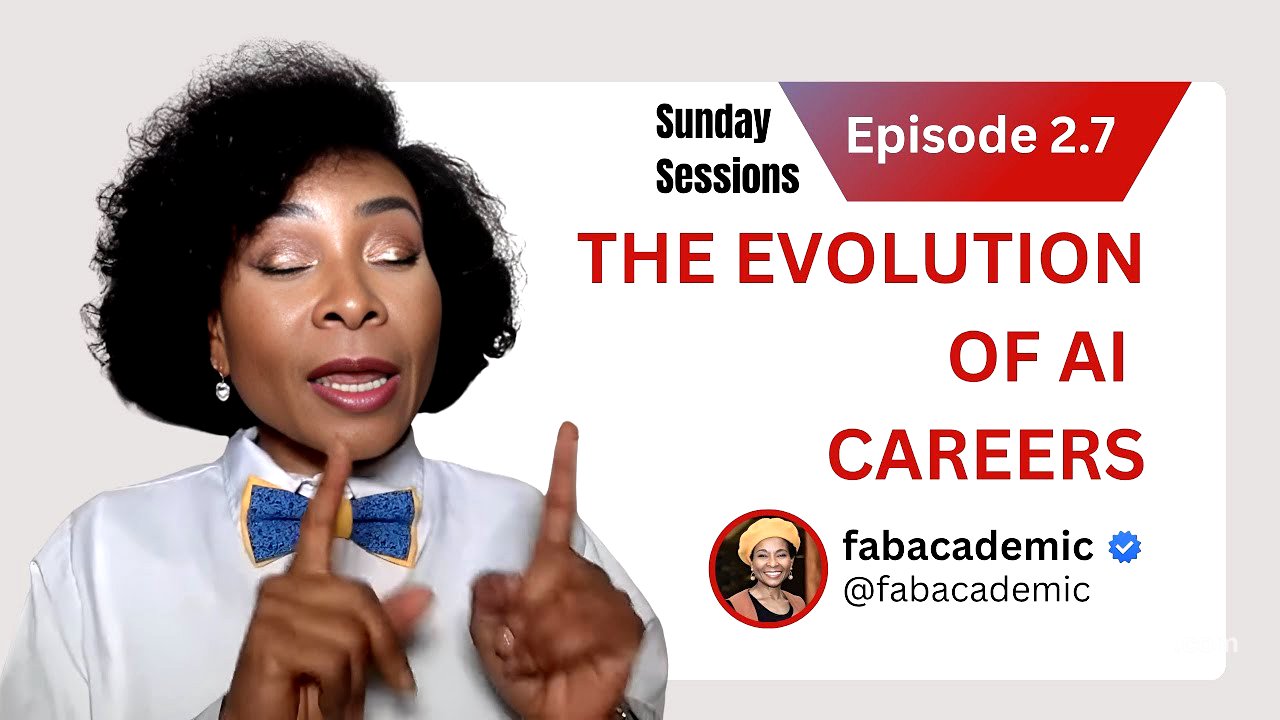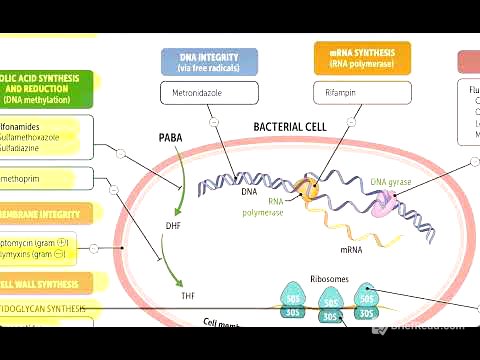TLDR;
This YouTube video features a conversation with Dell Doro, an AI and data science professional, and Weo Malibillo, an entrepreneur in the same field. They discuss how individuals from diverse educational backgrounds can enter the AI and data science space, highlighting the importance of curiosity, problem-solving skills, and continuous learning. The discussion covers practical steps, available online resources, and the potential for entrepreneurship in AI, encouraging viewers to explore opportunities in this growing field regardless of their formal qualifications.
- Importance of curiosity and problem-solving skills over specific degrees.
- Availability of free online courses and resources for learning AI and data science.
- Entrepreneurial opportunities in AI for solving local problems.
- The concept of "prompt engineering" and the need to ask the right questions to AI tools.
Introduction [0:13]
Prof Mamokgethi Phakeng introduces Dell Doro, who transitioned into AI and data science without a traditional computer science or mathematics background. The conversation aims to guide those interested in entering the AI field, regardless of their educational background. Dell works in data science and AI for a telecommunications company.
Defining Data Science and AI [4:09]
Dell explains that data science involves using data to make informed decisions across various sectors like health, finance, and education. AI fits into this by using vast amounts of data to learn patterns, predict future outcomes, and automate processes. The integration of data, machine learning, and generated AI makes systems autonomous.
Dell's Background and Journey into AI [7:15]
Dell recounts her journey from a rural background to studying at Wits University. Initially aiming for actuarial science, she shifted to pure maths, computational and applied maths, economics, and computer science. Despite lacking prior computer experience, she excelled, eventually majoring in computational and applied maths. Dell pursued further studies, including an honours and master's degree, still unsure of her career path.
Internship at IBM's Africa Think Lab [13:04]
Dell's internship at IBM's Africa Think Lab in Braamfontein marked a turning point. There, she realised that her mathematics background was foundational to machine learning. She participated in research with health companies, using AI to understand tuberculosis from its DNA data. This experience led her to pursue a PhD in computational science and a full transition into data science through IBM courses covering machine learning and deep learning.
Entering AI Without a Maths Background [17:30]
Dell asserts that it is possible to enter AI and data science without a strong mathematics background. Her company recruits individuals from diverse fields like HR, finance, and customer value management, providing them with a six-month program to learn data science fundamentals, deep learning, and generative AI. Problem-solving skills, curiosity, and a willingness to learn are crucial for success in this field.
Resources and Pathways into AI [22:19]
Dell recommends free online courses for those interested in AI, highlighting the democratisation of data science. Platforms like Kaggle offer data sets for practical problem-solving. Explore AI in South Africa provides funding and job placement after completing their program. Dell also suggests entrepreneurship, identifying local problems that can be solved with data-driven products.
Weo's Journey and Entrepreneurship in AI [26:20]
Weo shares her experience of dropping out of university due to financial constraints and joining a digital skills program at EBL Institute of Business and Technology. This program, in partnership with MTN and UFS Business School, led her to study data analytics and business analytics. Now self-employed, Weo runs Immaculate Group, offering freelance data analysis and virtual assistant services.
Virtual Assistance and AI Opportunities [31:57]
Weo explains her work as a virtual assistant, helping businesses automate workflows and individuals find remote job opportunities. She assists with calendar scheduling, typing, and web design, acquiring clients from various locations. This highlights the potential for graduates to work virtually, competing in a global market.
AI Tools and Problem Solving [38:22]
Dell discusses how AI tools can assist in various tasks, such as business plan creation and CV enhancement. She emphasises the importance of identifying community problems and using AI to develop solutions. This problem-solving approach can lead to proposals for municipalities and the creation of virtual offices offering AI-driven services.
Making Money and Building Relationships [44:30]
Weo confirms that she is making money through her entrepreneurial ventures, focusing on building long-term client relationships. She is not reliant on grants or begging for assistance, demonstrating the viability of entrepreneurship in the AI space.
Starting a Career in AI with a Non-Technical Degree [47:13]
Dell advises those with non-technical degrees to start with online platforms like Udacity and Udemy to learn the fundamentals. She recommends joining communities like Towards Data Science, Medium, Kaggle, and Zindi to learn from others and solve problems. Building an online presence through platforms like GitHub is also crucial.
The Importance of Curiosity and Problem-Solving [50:39]
Dell and Weo reiterate that anyone can enter the AI space with curiosity and a problem-solving mindset. While fundamental knowledge is essential for building AI systems, those with the right mentality can learn the necessary tools. Weo advises focusing on one tool at a time to understand it thoroughly before moving on to others.
Prompt Engineering and Asking the Right Questions [56:30]
The discussion shifts to "prompt engineering," the skill of asking the right questions to AI tools. Knowing what you want and how to articulate it is crucial for getting the desired outcome. This skill can be taught and integrated into education.
Addressing Specific Problems with Data [59:20]
Dell addresses a question about using AI to solve problems faced by learners. She emphasises the importance of collecting data to understand the root causes of these problems. Tools like Excel and Google Workspace can be used to collect and analyse data, even before using AI.
Conclusion and Key Takeaways [1:03:23]
Prof Phakeng summarises the key points, highlighting the contrasting journeys of Dell and Weo. Dell, with a mathematics background, works in corporate AI, while Weo, without a technical degree, is a successful entrepreneur. The video encourages viewers to explore AI careers regardless of their background, utilising online resources and accredited institutions like EBL. The message is clear: seize the opportunity to build a career in AI rather than criticising or fearing it.









